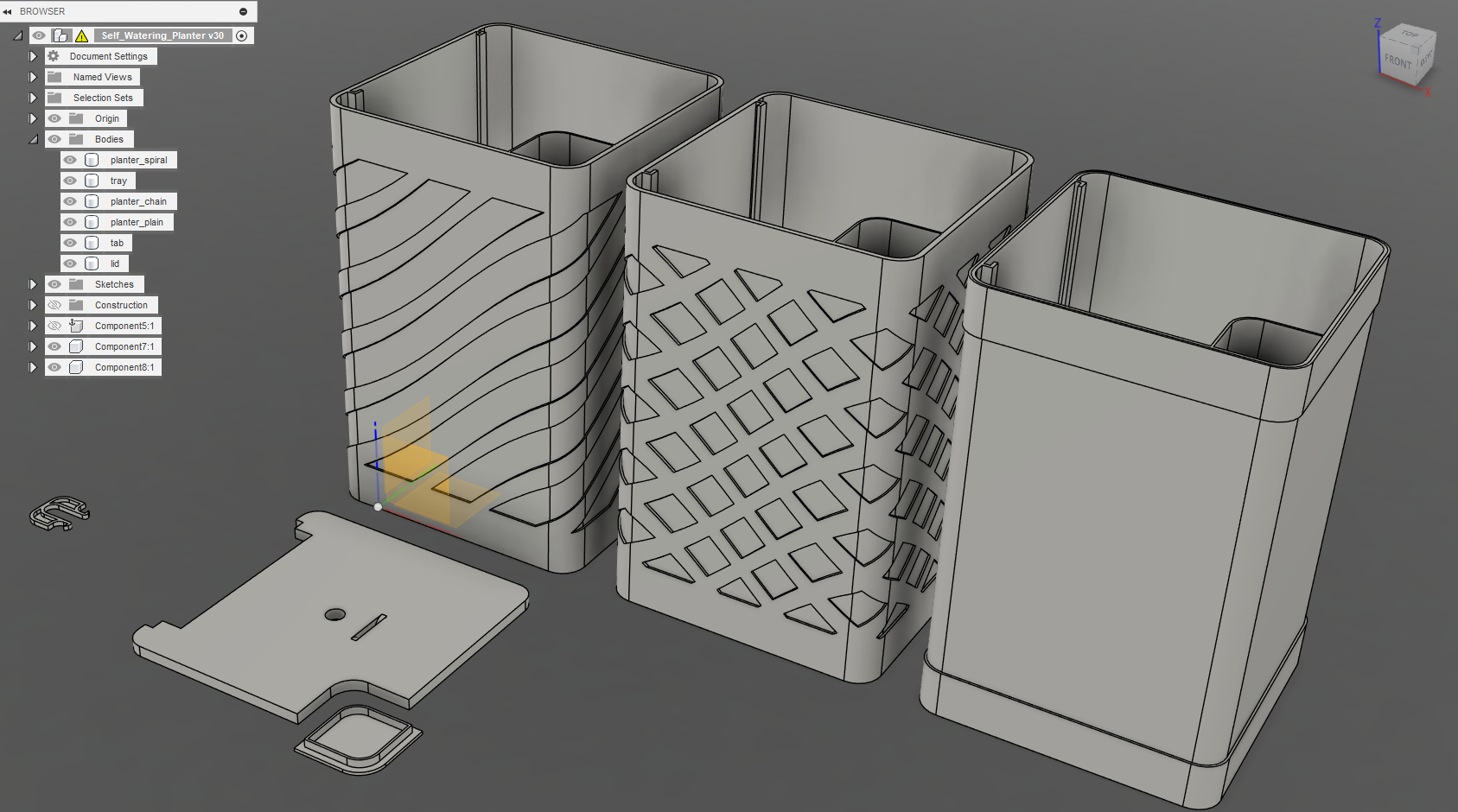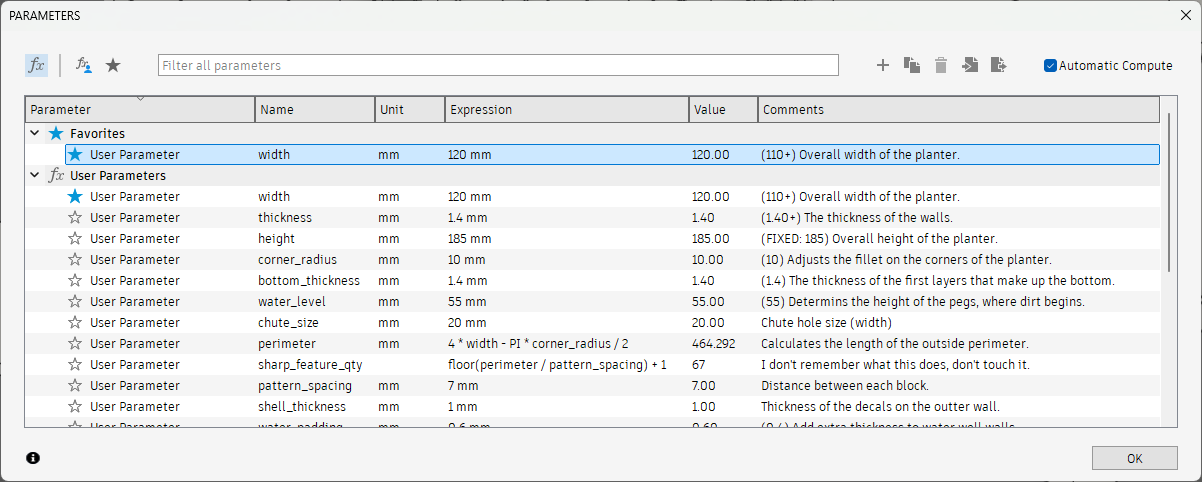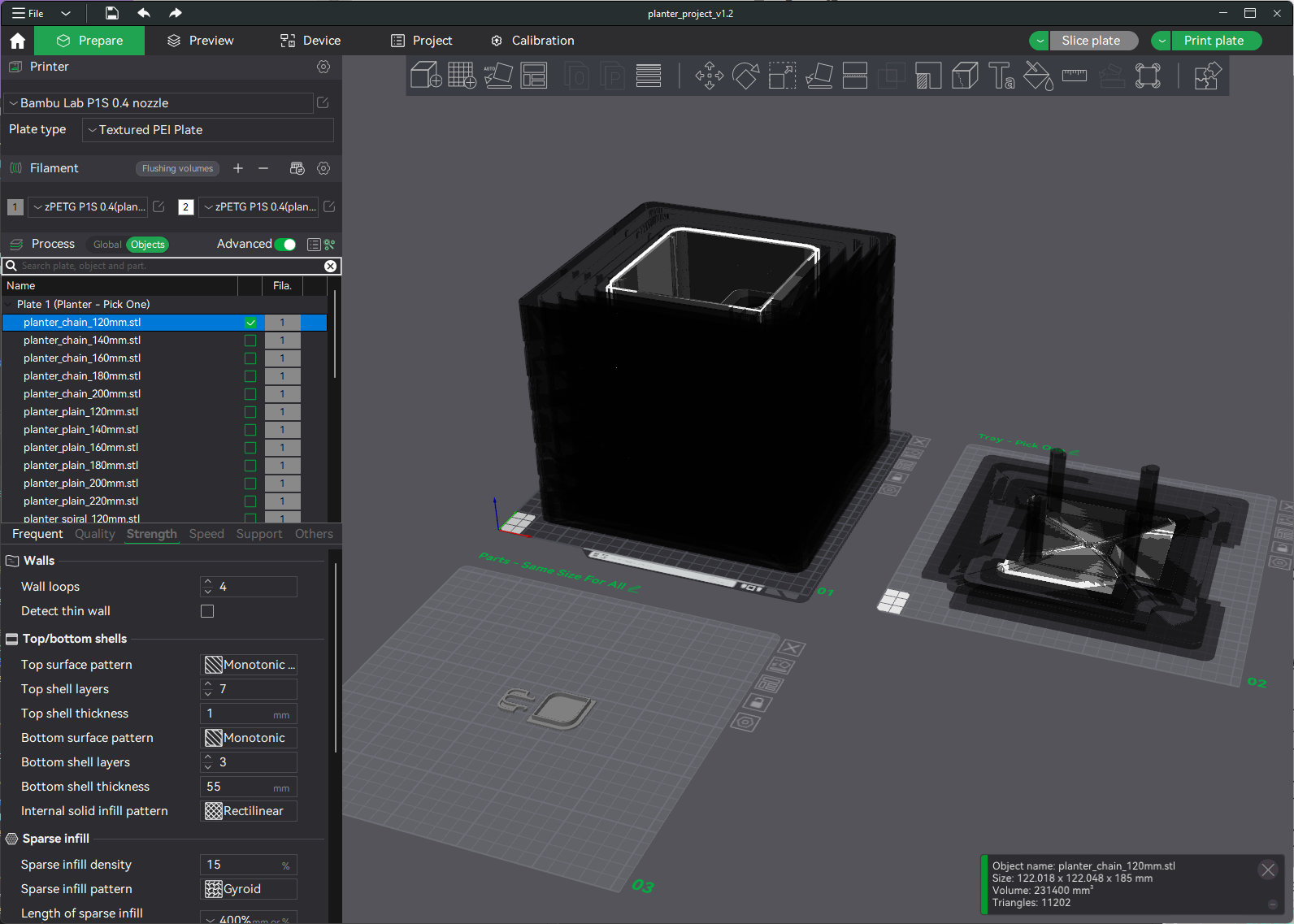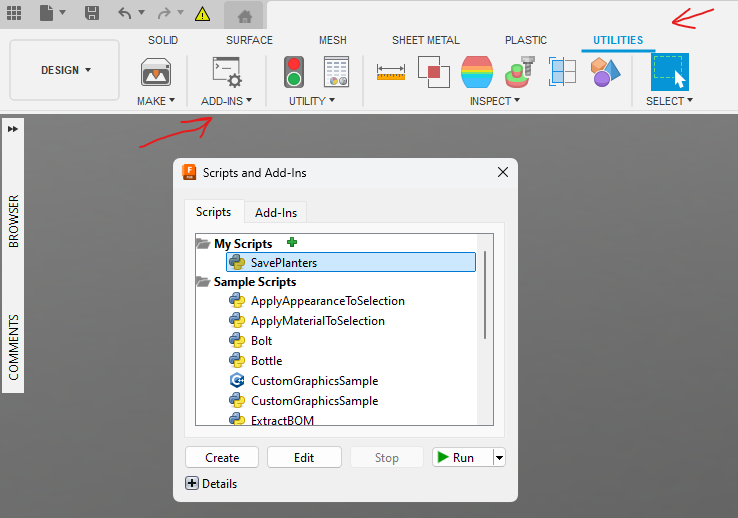Parameteric Automation
Automated Designs with Fusion 360


I built a fully parameterized model in Fusion 360 for a self-watering planter. Originally, I did it to fiddle with different settings easily, but by the end, I saw it as a way to pump out multiple versions to sell. The challenge was generating all the possible size variants without losing my mind. So, I wrote a script that loops through the bodies in the project, exports each one as an STL, updates the parameters, and repeats. It’s clever enough to skip the constant parts—no point in re-exporting what doesn’t change. Want the details? Check out the code below.

Once I had all the STL files, I loaded them into a single Bambu Studio project (Orca Slicer works too—both are solid options). From there, it’s just checking boxes for the components I want to print. All my settings carry over to each part, no hassle, and I’m ready to hit print.

Fusion 360 script (Python-based, naturally— Autodesk’s got docs on that if you’re new to it). Tweak it for your own projects if you’re into parametric designs:

import adsk.core, adsk.fusion, traceback
import os
def run(context):
try:
# Get the Fusion 360 application and UI
app = adsk.core.Application.get()
ui = app.userInterface
# Get the active design
design = adsk.fusion.Design.cast(app.activeProduct)
if not design:
ui.messageBox('No active design found. Please open your design.', 'Error')
return
# Get the root component and its bodies
rootComp = design.rootComponent
bodies = rootComp.bRepBodies
# Get the "width" parameter
width_param = design.userParameters.itemByName('width')
if not width_param:
ui.messageBox('Parameter "width" not found in the design.', 'Error')
return
# Define the export directory (adjust this path as needed)
base_path = "C:/STL_Exports" # Example path, change to your preferred location
os.makedirs(base_path, exist_ok=True) # Create directory if it doesn’t exist
# Define the width values (e.g., 120, 140, 160, 180, 200 mm)
width_values = [120, 140, 160, 180, 200, 220] # Customize this list as needed
# Get the export manager
exportMgr = design.exportManager
# Step 1: Export fixed-size lid and tab once
fixed_bodies = [body for body in bodies if body.name in ['lid', 'tab']]
for body in fixed_bodies:
filename = os.path.join(base_path, f"{body.name}.stl")
stlOptions = exportMgr.createSTLExportOptions(body, filename)
exportMgr.execute(stlOptions)
app.log(f"Exported {body.name} to {filename}")
# Step 2: Export planters with incrementing widths
planter_bodies = [body for body in bodies if body.name in ['planter_spiral', 'planter_chain', 'planter_plain', 'tray']]
for width_value in width_values:
# Update the width parameter
width_param.expression = f"{width_value} mm"
app.log(f"Setting width to {width_value} mm")
# Export each planter for the current width
for body in planter_bodies:
filename = os.path.join(base_path, f"{body.name}_{width_value}mm.stl")
stlOptions = exportMgr.createSTLExportOptions(body, filename)
exportMgr.execute(stlOptions)
app.log(f"Exported {body.name} to {filename}")
# Notify user of completion
ui.messageBox('Export complete: Lid, tab, and planters exported as STL files.', 'Success')
except:
# Handle errors
if ui:
ui.messageBox('Script failed:\n{}'.format(traceback.format_exc()), 'Error')
# Required boilerplate for Fusion 360 scripts
def stop(context):
pass
- Fusion 360: If you’re not already using it, it’s a beast for parametric modeling. Autodesk’s got a free tier for hobbyists—check it out here.
- Bambu Studio: My go-to slicer for this. It’s built for Bambu Lab printers but plays nice with others too. Grab it here.
- Orca Slicer: A fork of Bambu Studio with extra tweaks—more printer profiles and calibration options. Find it on GitHub here.